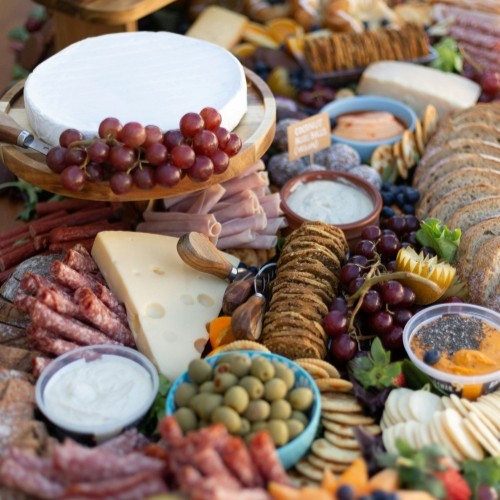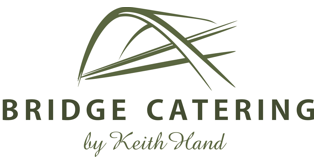In the world of event planning, catering can make or break the experience. Whether you’re hosting a cozy gathering or a grand celebration, ensuring your guests are well-fed is crucial. This brings us to a vital decision every planner faces—choosing between supplemental catering and full catering. Both options have their merits and challenges, but which is the right choice for your event?
There are some key differences, benefits, and potential pitfalls of each catering style. Our goal is to equip you with the insights needed to make an informed decision that aligns with your vision and resources. Learn more about how to satisfy your guests and create a memorable event.
Understanding Supplemental Catering
Supplemental catering offers flexibility and control. It involves hiring a caterer to provide specific aspects of your event’s menu rather than the entire meal. This option is ideal for hosts who want to personalize their event with a unique touch while still seeking professional assistance.

The Advantages of Supplemental Catering
- One of the biggest advantages of supplemental catering is customization. With this option, you can tailor the menu to suit your preferences and your guests’ tastes. Whether it’s a signature dish or a beloved family recipe, the choice is yours.
- Cost-effectiveness is another benefit. By only paying for certain elements of your meal, supplemental catering can be easier on the budget. This approach allows you to allocate funds to other areas of your event, such as entertainment or decorations.
- Finally, supplemental catering gives you greater control over the dining experience. You can participate in the planning process by selecting specific dishes and presentation styles, ensuring every detail reflects your unique vision.
Challenges of Supplemental Catering
- While supplemental catering offers many benefits, it also comes with its own set of challenges. Coordinating multiple vendors can be complex and time-consuming, requiring careful planning to ensure a seamless dining experience.
- Logistics can also be a stumbling block. When selecting supplemental catering, it’s crucial to consider how the various components of your meal will be prepared, delivered, and served. Without proper coordination, you risk disjointed service or mismatched courses.
- Additionally, supplemental catering may require more involvement from you as the host. From menu selection to vendor communication, this option demands a hands-on approach, which can be overwhelming for some event planners.
Delving into Full Catering
Full catering, on the other hand, offers a comprehensive solution. This option involves hiring a caterer to handle every aspect of the dining experience, from appetizers to desserts. Full catering is ideal for hosts seeking a stress-free event with minimal involvement in the meal preparation process.
Benefits of Full Catering
- One of the most significant advantages of full catering is convenience. With a team of professionals overseeing every detail, you can focus on enjoying your event rather than worrying about the logistics of meal service.
- Full catering also ensures consistency in food quality and presentation. By entrusting the entire menu to a single provider, you can expect a cohesive dining experience that delights your guests and showcases your event’s theme.
- Lastly, full catering often includes additional services, such as table settings and waitstaff. These added benefits enhance the overall experience for your guests and contribute to a polished, professional atmosphere.
Possible Drawbacks of Full Catering
- Despite its many benefits, full catering can present challenges, particularly in terms of cost. Comprehensive service often comes with a higher price tag, making it less accessible for those working with a limited budget.
- Another consideration is the potential lack of personalization. With full catering, hosts may have fewer opportunities to incorporate personal touches or customize the menu to suit individual tastes.
- Finally, full catering may limit your control over the dining experience. While this can be a relief for some hosts, others may feel constrained by the options provided by a single caterer.
Comparing Costs and Budgets
When deciding between supplemental and full catering, cost is a crucial factor to consider. Both options offer varying price points, depending on the scope and scale of the event.
Analyzing Costs for Supplemental Catering
Supplemental catering can be a cost-effective choice for those on a budget. By only paying for specific elements, you can allocate funds to other aspects of your event. However, it’s essential to account for additional expenses, such as hiring separate vendors or purchasing ingredients yourself.
Considering the potential for customization, supplemental catering allows you to prioritize your spending. For example, you might splurge on a premium dish while opting for more affordable options elsewhere. This flexibility helps you stay within budget without compromising on quality.
Evaluating Costs for Full Catering
Full catering typically comes with a higher price tag due to the comprehensive nature of the service. When budgeting for this option, consider all-inclusive packages that cover everything from appetizers to staff. While this may seem expensive at first glance, remember that full catering often includes additional services, such as setup and cleanup.
Despite the initial investment, full catering can offer value for money when factoring in the convenience and professionalism provided by experienced caterers. By streamlining the process, you save time and effort, allowing you to focus on other aspects of your event.
Setting the Mood with Menu Styles
The style of your menu can significantly impact the overall atmosphere of your event. Both supplemental and full catering offer diverse options to match your vision.
Menu Styles in Supplemental Catering
With supplemental catering, you have the freedom to create a unique dining experience. This option lets you mix and match various culinary styles, incorporating different cuisines or themes into your event.
For example, you might choose to serve a buffet-style meal, allowing guests to sample a wide range of dishes. Alternatively, you could opt for a plated dinner, creating an elegant, formal setting. The choice is yours.
Menu Styles in Full Catering
Full catering offers a more structured approach to menu planning. Caterers often provide pre-designed packages that cater to specific tastes or dietary requirements. This can be particularly beneficial for hosts seeking a cohesive dining experience.
Whether you prefer a traditional sit-down dinner, a casual buffet, or a cocktail party with passed hors d’oeuvres, full catering provides options to suit your theme and guest’s expectations. With the expertise of professional chefs, you can be confident in delivering a memorable meal.
Considering Dietary Restrictions
Catering to dietary restrictions is essential for ensuring all guests feel welcome and included. Both supplemental and full catering can accommodate these needs, but the approach may differ.
Addressing Dietary Needs in Supplemental Catering
With supplemental catering, you have the opportunity to tailor the menu to accommodate specific dietary requirements. This flexibility allows you to collaborate with vendors to create dishes that meet the needs of all guests.
By communicating openly with your chosen caterers, you can ensure that everyone has a delicious and satisfying meal. It’s essential to inquire about any guests’ restrictions in advance, allowing ample time for adjustments.
Handling Dietary Needs in Full Catering
Full catering services often include options for addressing dietary restrictions. Many caterers offer specialized menus that cater to various dietary preferences, such as vegetarian, vegan, or gluten-free.
When selecting a full catering provider, inquire about their ability to accommodate specific needs. By working closely with their team, you can ensure a seamless dining experience for all attendees.
Navigating Logistics and Coordination
The logistics of meal service can be complex, but both supplemental and full catering provide solutions to streamline the process.
Managing Logistics in Supplemental Catering
With supplemental catering, you must carefully coordinate the various components of your meal. This may involve managing multiple vendors, arranging delivery times, and ensuring that all dishes are prepared and served harmoniously.
Planning is vital to a successful supplemental catering experience. By establishing clear communication with your chosen vendors and creating a detailed timeline, you can avoid potential pitfalls and ensure a smooth event.
Coordinating Logistics in Full Catering
Full catering simplifies logistics by providing a cohesive service from a single provider. This approach minimizes the need for extensive coordination, allowing you to focus on other aspects of your event.
Caterers often handle setup, service, and cleanup, providing a seamless dining experience. By entrusting logistics to professionals, you can enjoy peace of mind and concentrate on creating a memorable occasion.
Conclusion
Deciding between supplemental and full catering requires careful consideration of your event’s needs, budget, and personal preferences. Both options offer unique advantages and challenges, making it essential to weigh the pros and cons to determine the best fit for your occasion.
Understanding the differences between these catering styles allows you to make an informed decision that aligns with your vision and resources. Whether you prefer the flexibility of supplemental catering or the comprehensive service of full catering, the key is to choose the option that best supports your goals and enhances your guests’ experience.
For those seeking further guidance, feel free to Contact Us with any questions, concerns, or additional information about our catering packages.





Leave a Reply